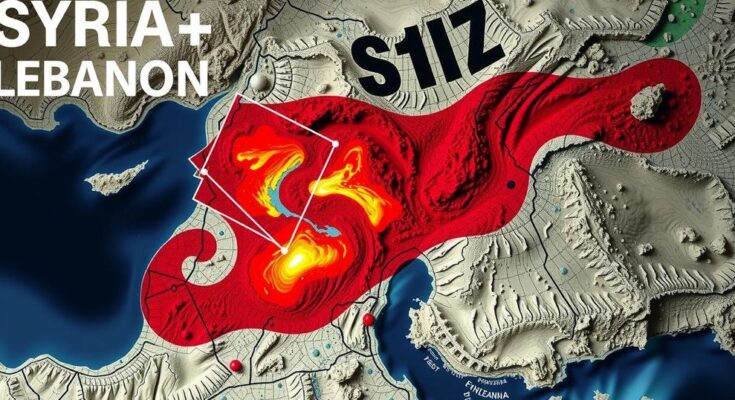The recent political developments in Lebanon, spurred by the collapse of the Assad regime in Syria, have seen a resurgence of Sunni activism, prominently led by Jamaah Islamiya demanding amnesty for imprisoned Sunnis. Meanwhile, Hezbollah faces challenges in maintaining its power amid internal political fragmentation. The upcoming presidential election and evolving relationships with Syria signal a period of potential instability in Lebanon.
The recent shifts in the political landscape of Lebanon have emerged against the backdrop of developments in neighboring Syria, particularly following the collapse of the Assad regime. Initially marked by celebratory demonstrations, primarily among Sunni communities, these shifts have resulted in increased calls for the release of imprisoned Sunni Islamists. The Jamaah Islamiya, a significant Islamist faction, has taken the lead in demanding amnesty for these individuals, emphasizing the psychological awakening of the Sunni community in Lebanon.
This re-energization of Sunni political activism appears particularly focused on asserting their influence amid Hezbollah’s diminished standing subsequent to its military setbacks. Leadership calls for amnesty led by figures such as Sheikh Ahmad Shemali indicate a strategic pivot towards consolidating Sunni power in Lebanon. However, political maneuvering faces substantial hurdles as the Lebanese Parliament’s Speaker, Nabih Berri, maintains a strong alliance with Hezbollah and control over amnesty decisions.
Moreover, the internal dynamics within Lebanon reveal a political crisis, fraught with tension among the Shiite, Christian, and Sunni communities. As Hezbollah grapples with declining popularity, its military presence faces scrutiny, especially concerning compliance with ceasefire agreements. The uncertainty surrounding the upcoming presidential election further exacerbates these challenges. The Christian bloc, fragmented and unable to unite behind a single candidate, complicates the political landscape, creating potential leadership gaps amidst growing Sunni activism.
Furthermore, the complex relationship between Lebanon and the shifting regime in Syria presents both opportunities and threats. With Lebanon’s Sunni majority looking towards the neighboring Sunni-led government for potential alliances, concerns about destabilization and the influx of Islamic extremism linger. Historical precedents such as the 2013 ISIS incursions into Lebanon remain fresh memories that influence public sentiment. At the same time, the leader of the anti-Assad faction has publicly declared his support for Lebanese Army chief Joseph Aoun, indicating a measured approach and a desire to avoid past conflicts across the border.
In conclusion, the situation remains fluid as both Lebanon and Syria navigate a path toward potential political reconfiguration. The Sunni community’s awakening may signify a pivotal shift, yet it is underscored by an inherent struggle to mobilize political capital amidst entrenched sectarian divisions. The interplay of regional dynamics continues to set the stage for future developments, necessitating cautious observation as Lebanon strives for stability.
The political landscape of Lebanon is currently undergoing significant changes influenced by the events in Syria. The collapse of the Assad regime has emboldened Sunni factions within Lebanon, who are asserting demands for political recognition and amnesty for imprisoned members of their community. Concurrently, Hezbollah’s declining influence, coupled with internal political fragmentation among the Christian community, has created a complex environment that necessitates understanding the historical grievances and sectarian nuances inherent within Lebanese politics. Moreover, the relationship between Lebanon’s Sunni factions and the newly established Sunni regime in Syria adds another layer of complexity, posing both risks and opportunities for future alliances.
In summary, the Lebanese political environment is characterized by a resurgence of Sunni activism in the wake of changes in Syria, presenting both challenges and opportunities. Internal divisions among Christians and the precarious position of Hezbollah amid geopolitical shifts contribute to an unstable foundation for future governance. The burgeoning relationship between Lebanon’s Sunni populace and the Sunni regime in Syria could reshape the political dynamics further, making it crucial to monitor these developments closely.
Original Source: aurora-israel.co.il




